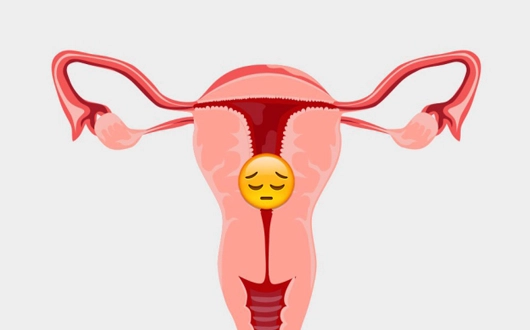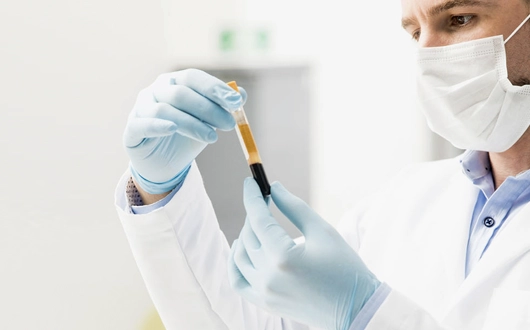
In vitro fertilization (IVF) also known as "test-tube baby treatment," is the process of combining an egg and sperm in a laboratory setting to create an embryo, which is then transferred to the woman's uterus.
This technique was first introduced in 1978 by British scientist Prof. Dr. Robert Edwards. Dr. Edwards was awarded the Nobel Prize in Physiology or Medicine in 2010 for his groundbreaking work in IVF.
IVF differs from natural conception in that the egg, which is obtained from the woman, and the sperm, obtained from the man, are combined for fertilization.
This fertilization occurs in a laboratory setting. In the classic IVF method, the sperm and egg are combined in the same test tube for fertilization. However, to enhance fertilization rates, a technique called intracytoplasmic sperm injection (ICSI) is now used, where sperm is injected directly into the egg using specialized equipment.
Approximately 16-19 hours after fertilization, the process is checked. Once fertilized, the cells begin to divide and are referred to as embryos. The embryos are cultured in a special medium for 2-5 days to ensure they reach the desired stage of development. The embryos can either be frozen or transferred fresh into the uterus.
Advanced techniques are used to monitor and select embryos for transfer. After 2, 3, or 5 days of observation, the embryos are assessed for their quality, and those that meet the required criteria are transferred into the woman's uterus using a catheter. This procedure is called embryo transfer (ET) and is generally painless, without the need for anesthesia.
We understand that no two patients are alike, which is why our priority is to evaluate each patient properly to determine the most suitable treatment. With our experience, we can identify unique tendencies that lead to success, even in rare infertility cases.
The steps of IVF treatment are standardized. These steps include hormone therapy for egg stimulation, egg retrieval from the ovaries, artificial fertilization using sperm, the transfer of the resulting embryos into the uterus, and a pregnancy test. In some special cases, embryos may be frozen to improve success rates.
Couples planning IVF often search for the best IVF center or IVF doctor in Istanbul. The best IVF center in Istanbul is one that applies the above steps meticulously, using the highest technology in a laboratory setting, while also meeting the emotional needs of the patients.
The best IVF centers in Istanbul combine cutting-edge technology with the experience of skilled IVF specialists to maximize the chances of success. A top IVF doctor in Istanbul is one who has treated numerous cases involving low egg reserve, endometriosis, polycystic ovary syndrome (PCOS),male infertility, recurrent pregnancy loss, and repeated IVF failures.
IVF treatment should be considered in the following cases:
After an initial consultation and examination to identify any potential causes of infertility, treatment is generally started on the 2nd or 3rd day of the woman's menstrual cycle.
There are some exceptions for starting IVF treatment. For example, women who have been diagnosed with cancer and require chemotherapy or radiotherapy may begin treatment independently of their menstrual cycle, with egg stimulation and retrieval performed via ultrasound.
Another group of patients includes those with low egg reserves, where sequential egg retrievals are planned. After the first egg retrieval, the patient is invited back to the clinic 2-3 days later to begin the treatment.
Infertility can be caused by either the woman or the man. IVF treatment is applied to couples who have not been able to conceive through natural means.
IVF treatment is based on the crucial stages of obtaining healthy eggs, combining them with healthy sperm, and using advanced treatment methods to bring them together in a laboratory environment. For the treatment to be effective, it is necessary for the woman’s egg formation and development to be done in the most optimal way. In men, there should be no health issues that interfere with sperm production and secretion. If there is an obstruction, sperm can be retrieved using surgical methods such as TESE, TESA, or micro TESE.
This is the meeting where the prospective parents meet with the doctor, and the tests and results related to the treatment are reviewed, followed by the planning of the process.
During this process, if additional treatments need to be applied to the woman or man before starting the treatment, they may begin.
Following the first consultation and examination, potential problems causing infertility are identified and the treatment is determined based on the cause and the couple's other conditions (such as age, comorbidities, etc.). After the treatment plan is decided, the woman is invited to the clinic on the 2nd or 3rd day of her menstrual cycle to begin treatment.
On the 2nd or 3rd day of the woman's menstrual cycle, she is invited to the clinic, where the number of ovarian follicles and any obstacles to treatment are checked via ultrasound. Blood tests may also be requested to measure estrogen and progesterone hormone levels. The treatment dose and duration are determined based on factors such as the cause of infertility, the woman's age, weight, and previous treatment outcomes. The couple will be called back to the clinic at regular intervals to monitor the number and size of the eggs.
Once the eggs reach the desired size and number, egg retrieval is performed under anesthesia. The procedure can be done vaginally or abdominally. Using a needle approximately 30 cm long, under ultrasound guidance, the egg retrieval is performed after proper sterilization. The needle is inserted into the developing follicles, and the fluid is aspirated using a suction device. The aspirated follicular fluid is collected in a tube and delivered to the laboratory for further treatment.
Abdominal Egg Retrieval Procedure
In Turkey, women with low egg reserves or those who have conditions that may damage their reproductive organs can undergo egg freezing.
Abdominal egg retrieval is performed under anesthesia, where a needle is inserted into the abdomen to access the ovarian tissue and collect mature eggs. This procedure carries the same risks as vaginal egg retrieval, but when performed by experienced professionals, these risks can be minimized.
ICSI (Intracytoplasmic Sperm Injection)
ICSI is the process of selecting a live sperm with a pipette, piercing the egg membrane, and injecting the sperm directly into the egg.
The follicular fluid delivered to the laboratory is examined under a microscope, and the egg is identified by the embryologist if found in the follicular fluid, which is about 100 microns in size. If an egg is found, it is prepared for fertilization by being isolated and stored for 2-4 hours.
After the 2-4 hour waiting period, the embryologist re-examines the egg under the microscope to check if it is mature (M2). Once mature eggs are identified, artificial fertilization is performed using ICSI, IMSI, or piezoelectric techniques. Fertilization is checked 16-19 hours later under a microscope.
Embryos that show proper division on the first day of fertilization are monitored in a special culture medium. The embryos that divide properly are either transferred fresh or frozen for later transfer.
Conditions for Egg and Sperm Freezing for Reproductive Preservation
For men, medical conditions requiring the storage of reproductive cells and gonad tissue include:
For women, medical conditions requiring the storage of reproductive cells and gonad tissue include:
Fresh and Frozen Embryo Procedures
The goal of IVF is to promote the development of multiple eggs. Treatment begins with an ultrasound on the 2nd or 3rd day of the menstrual cycle. The starting medication dose for treatment may vary depending on the woman's egg reserve and body weight.
The duration of the medication to stimulate egg growth can vary, typically between 8-12 days, depending on the response. Medication doses and treatment protocols are individualized for each patient.
At the end of this period, egg retrieval is performed under anesthesia. After the retrieval, the embryo development process begins, and the embryo transfer occurs on the 2nd, 3rd, or 5th day.
Frozen Embryo Transfer Process
Stage 1: Treatment begins with an ultrasound on the 2nd or 3rd day of the menstrual cycle. The duration of medication for egg growth varies depending on the patient's response but is usually between 8-12 days. After this period, egg retrieval is performed under anesthesia. Following the retrieval, embryo development is monitored, and embryos are frozen on the 2nd, 3rd, or 5th day.
For patients who will undergo genetic testing, embryo freezing is done on the 5th or 6th day. The biopsy taken from the embryo is sent for genetic examination.
Stage 2: After egg retrieval, it is expected that menstruation will begin within a week or 10 days. Embryo transfer can be performed either during the current menstrual cycle or the following one.
How to Proceed with Frozen Embryo Transfer?
Frozen embryo transfer is carried out by increasing the thickness of the uterine wall using estrogen hormone, either orally, transdermally, or vaginally. Tracking the uterine wall thickness through natural egg development can also be done. This process typically takes 10-15 days, and once the appropriate thickness and hormone levels are achieved, the embryo transfer date is determined.
For patients coming from out of town or abroad, they are usually required to come for a check-up 12-15 days after starting estrogen hormone therapy.
Should I Rest in Bed After Embryo Transfer?
The most common question couples ask after embryo transfer is how many days of rest they should have. Our general recommendation is that couples rest for a few days. However, studies indicate that resting in bed immediately after transfer does not affect pregnancy outcomes.
An analysis of 21,598 patients in 2022 showed that whether moving or staying in bed immediately after embryo transfer, it does not affect pregnancy results. Therefore, absolute bed rest after embryo transfer is not necessary according to scientific evidence.
Genetic Testing for Embryo Patients
For patients who undergo egg retrieval, embryo development, and biopsy, genetic test results typically take 2-4 weeks to be processed. After this period, patients are advised to wait for the genetic test results. Often, couples can begin the embryo transfer process after missing one menstrual period and starting the treatment on the 2nd or 3rd day of the next cycle.
The woman is prepared for the embryo transfer after the embryos have been monitored in the laboratory. The preparation involves ensuring the bladder is full, and the necessary sterile field is established. The catheter is inserted into the cervix under ultrasound guidance, and the embryo is placed into the uterus.
Once the embryo transfer is complete, medications for the test day are planned. Couples are usually advised to undergo a blood pregnancy test 10-15 days after the transfer.
In IVF treatment, success is not measured by a positive pregnancy test result, but rather by the rate of bringing home a healthy baby. The most important factors influencing this outcome are the woman's age and ovarian reserve. Therefore, a woman with advanced age but good ovarian reserve may have different success rates compared to younger women with low ovarian reserve, where pregnancy rates may be lower than expected.
Studies examining IVF success rates show the following:
The main reason for the decline in pregnancy rates with age is the effect on the embryo's genetics.
This decline in IVF success is not related to a decrease in the uterus’s ability to support pregnancy.
In addition to female age and ovarian reserve, other problems can also affect IVF success. For example, the presence of fibroids, polyps, or uterine septum can directly impact success. The location, size, and type of these conditions should also be considered.
IVF success rate is not related to the number of attempts. In other words, if the pregnancy rate is X% for the first IVF attempt, it will remain the same in subsequent attempts. Contrary to popular belief, the success rate does not decrease as the number of attempts increases.
There is no specific upper limit to the number of IVF attempts. However, a study by American researchers found that about 90% of couples who underwent embryo transfer after genetic testing for 3 cycles brought home a baby.
While there is no definitive limit on the number of IVF attempts, factors such as the woman's age, ovarian reserve, and the presence of any additional diseases play a more significant role in determining the number of attempts.
The potential long-term effects of medications used during treatment on human health are not fully known, but the maximum number of attempts is planned based on the psychosocial condition of the couple.
Once the initial consultation is held and the couple is invited to the clinic to begin treatment, the duration of IVF treatment can vary.
Ovary stimulation and egg retrieval take approximately 8-12 days.
After the egg retrieval, embryo transfer may involve fresh or frozen embryos, depending on the couple’s characteristics.
If a fresh embryo transfer is planned, it occurs 2 or 5 days after egg retrieval. Therefore, fresh embryo transfer in IVF usually happens within 2 weeks.
For frozen embryo transfer, the process differs. The transfer of frozen embryos can take place after egg retrieval or in the next cycle.
The woman must undergo uterine lining preparation. Medications are started on the 2nd or 3rd day of the menstrual cycle, and after 10-15 days of medication, the woman is invited to the clinic for uterine lining thickness and hormone control.
If these parameters are appropriate, the embryo is transferred within 2-5 days.
The most common questions couples ask at the start of IVF treatment are about the success rate of the first attempt and the maximum number of attempts allowed.
The success rate of the first IVF attempt is highly dependent on several factors, but for younger couples, the rate is often between 60-70%. If the first attempt fails, the success rate for subsequent attempts is similar. According to a study in the U.S., after genetic testing and obtaining healthy embryos, approximately 92% of couples have a baby after 3 attempts.
There is no upper limit for the number of IVF attempts. However, age is the key factor, especially for women over 45, as pregnancy complications may increase, and IVF may not be recommended after this age.
There is no specific age limit for IVF treatment in Turkey. However, there should be an age limit for IVF treatment. Why? We know that as age increases, the number of eggs decreases, and the likelihood of these eggs being genetically healthy decreases. Therefore, in many countries, IVF is not recommended for women over 45-46. Although pregnancy at later ages can occur, it is not recommended theoretically for healthy outcomes beyond the age of 46-47.
Couples often inquire about the risks of IVF treatment and whether the medications used during IVF pose any risks.
Studies have shown that IVF treatment does not increase the risk of cancers such as breast or ovarian cancer. No relationship has been established between the number of IVF attempts and these cancers. Therefore, IVF treatment does not pose cancer risks. However, infertility causes like endometriosis or chocolate cysts are known to increase the risk for certain cancers.
Anovulation, one of the leading causes of infertility, has also been associated with certain cancers. One of the most common diseases causing anovulation is polycystic ovary syndrome (PCOS). Women with PCOS are at higher risk for endometrial cancer.
These diseases have their own risks. Therefore, the medications used during IVF or the IVF procedure itself does not carry any risks.
We knocked on Mr. Cem's door with our past disappointments but a lot of hope and faith. We patiently wove the path we would walk. He always gave us great confidence. I am glad that{...}
01.07.2023We are experiencing everything we have dreamed of for years, first with the permission of Allah and then thanks to our dear doctor Cem ÇElik. Thanks to our doctor, we said goodbye{...}
06.06.2023Our excuse started when I saw you on the news and insisted my wife to get an appointment with you in July 2020, we started with our first appointment in July, we started with our f{...}
06.06.2023Dear couples and readers, you can review our topics below for all your questions about IVF treatment and infertility and answers to any questions you may have. All you wonder about IVF, infertility and gynecological diseases...

When success is expressed as pregnancy rate, it is generally known to be inversely proportional to increasing age. As the woman's age increases, the success rate of IVF decreases.

The AMH hormone, which indicates low egg reserve, is secreted from preantral egg cells, called precursor egg cells, in the ovarian tissue of women.

The use of PRP in the field of reproductive medicine has increased and become popular. Low ovarian reserve, menopause and endometrium (inner sheath of the uterus) have become new areas where PRP is used.